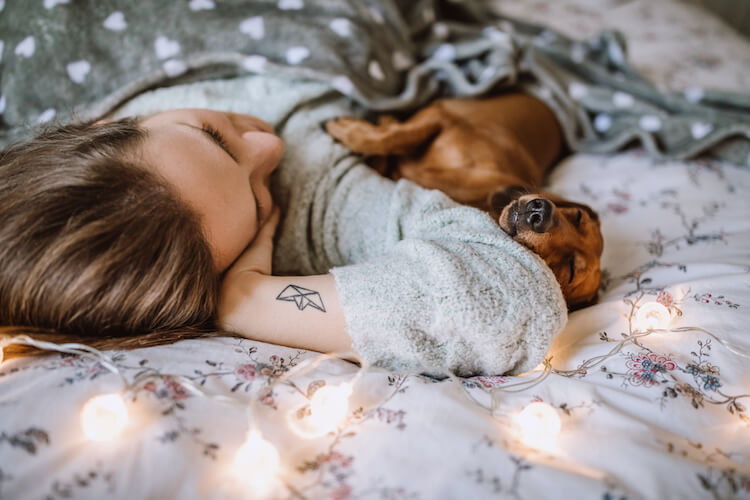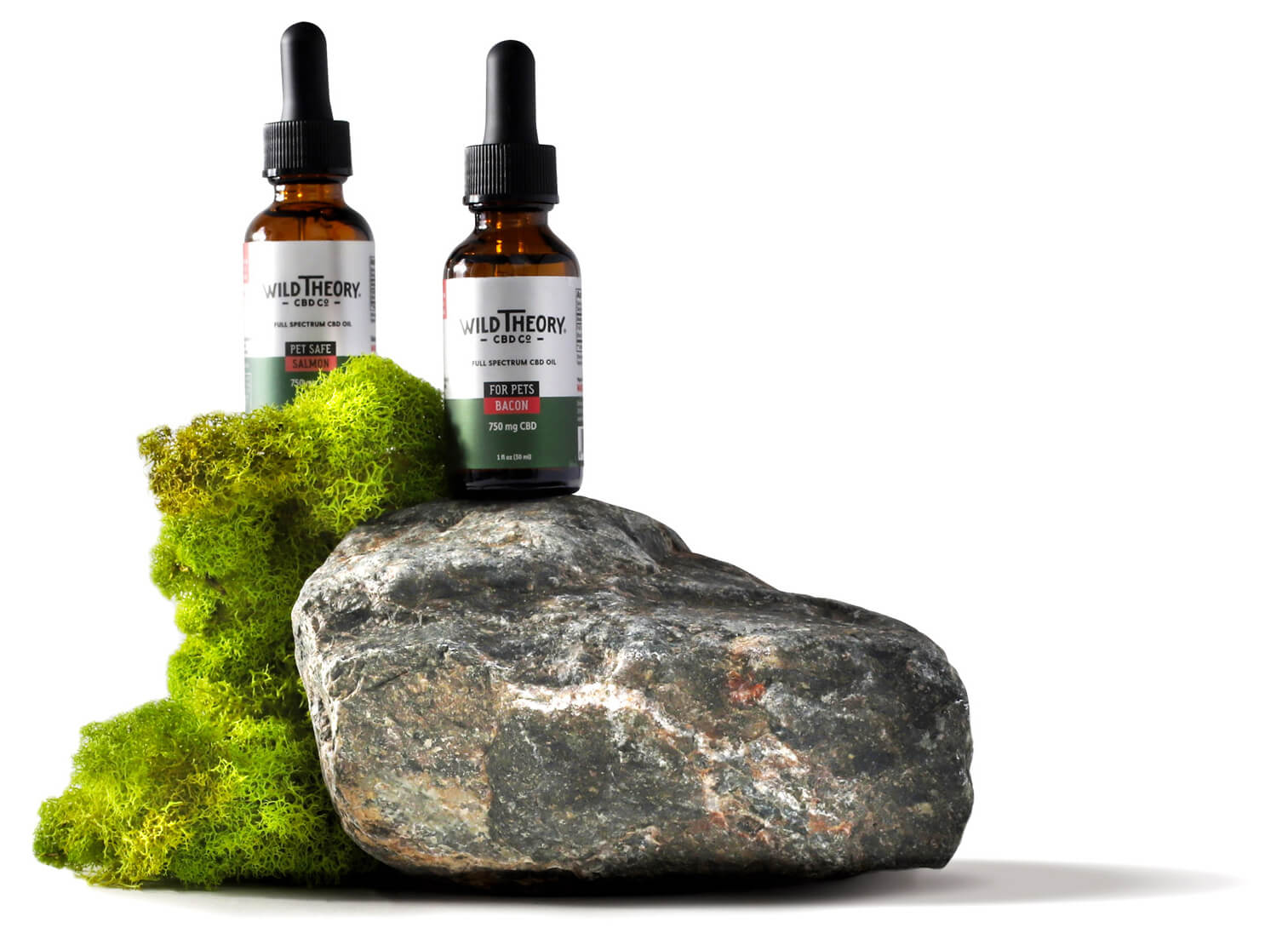
CBD for Sleep — Get More Sweet Dreams

Approximately, 70-80 million Americans suffer from sleep issues. Of these, a large majority have been diagnosed with one of the 80+ recognized sleep disorders.
You’re likely familiar with some of the most common sleep disorders, insomnia, nightmare disorders, restless leg syndrome, REM sleep behavior disorder, sleep apnea, and narcolepsy, among many others.
A chronic lack of sleep, according to the CDC, has become a public health epidemic. Due to a lack of proper education on the importance of proper rest, and the fact that for many of us our lifestyles have become increasingly demanding, we have seen a significant rise in intermittent sleep disorders every year.
Why A Lack of Sleep is a Big Problem
A lack of sleep means a lot more than just needing an extra cup of coffee in the morning to get you going. Chronic lack of sleep can contribute to or cause numerous (and serious) health issues. Some of the more common problems associated with sleeplessness are diabetes, obesity, depression, and high blood pressure. High blood pressure is a major risk factor for cardiovascular disease which can lead to a heart attack or stroke.
But failure to get your daily 8 hours can also affect you in the short term as well. Insufficient sleep can also result in lower mental acuity, loss of focus, inability to cope well with daily stressors, irritability, and loss of sex drive.
A lack of sleep on a regular basis can cause you to miss out on opportunities (both at work and at home), health, and the ability to fully enjoy life.
Is that a big deal? We’d certainly say so.
How Much Sleep is Enough Sleep?
Adults should be getting at least 7-9 hours of uninterrupted sleep each night and children require more. It’s widely believed that older adults (65+) often need less sleep, however, just because they sleep less doesn’t mean they don’t still need it. Seniors still require at least 7 hours of sleep to maintain good health.
The chart below from the CDC website lists the recommended hours of sleep for each age group.
| Newborn | 0–3 months | 14–17 hours (National Sleep Foundation)No recommendation (American Academy of Sleep Medicine)2 |
| Infant | 4–12 months | 12–16 hours per 24 hours (including naps) |
| Toddler | 1–2 years | 11–14 hours per 24 hours (including naps) |
| Preschool | 3–5 years | 10–13 hours per 24 hours (including naps) |
| School Age | 6–12 years | 9–12 hours per 24 hours |
| Teen | 13–18 years | 8–10 hours per 24 hours |
| Adult | 18–60 years | 7 or more hours per night |
| 61 years and older | 7–9 hours | |
| 65 years and older | 7–8 hours |
Let’s Talk About the Benefits
Enough with the threats of impending doom — let’s talk about what you have to look forward to when you get enough sleep. Adequate sleep each night can contribute to the following:
- Stronger immune function
- Lowered blood pressure
- Better focus and mental clarity
- Improved stress response
- More balanced moods
- Better hormone balance
- Weight control
- Balanced blood sugars
- Muscle recovery
- Increased daily energy
- Quicker recovery following an illness
Fun Fact: Sleep is especially important for athletes. Sleep can aid in muscle recovery and daily energy as well as boosting memory, focus, and response times. It’s no wonder that athletes like basketball star Lebron James and tennis legend Roger Federer sleep upwards of 12 hours per day!
Start Getting More Sleep
So, what is a person to do if they are among the 80 million or so Americans who suffer from sleep issues and can’t get the zzz’s? Instead of reaching for prescription sleep aids, try natural solutions first.
There is a vast array of lifestyle solutions to sleep disorders floating around on the web. Solutions can include meditation, daily exercise, essential oils, and supplements like magnesium and melatonin. Suggestions even include taking hot showers before bed, setting lower room temperatures, food schedules, and so much more.
All of these may be great approaches to obtaining better sleep and better health overall. But we have found one natural solution that may outperform them all…
How Does CBD Help With Sleep?
CBD works by stimulating our endocannabinoid system which in turn regulates our circadian rhythm or the “sleep/wake cycle.” By helping to balance this rhythm, CBD can naturally improve the quality and length of sleep.
CBD may also help those who suffer from insomnia fall asleep more easily. In this study, 15 subjects reported significantly better sleep after consuming 160mg of CBD in comparison to the placebo group.
But CBD plays another role as well. Many times, the inability to get adequate sleep comes from other internal factors, like anxiety, pain, digestive discomfort, or hormonal imbalances. The endocannabinoid system can influence and help to reduce all of these issues through CBD extracts.
Stress and Anxiety
We already know how well CBD may help with anxiety (link to anxiety blog) and in some cases, anxiety can negatively affect sleep cycles. In fact, oftentimes anxiety disorders and sleep disorders go hand in hand.
CBD may also help reduce cortisol levels. Cortisol is our stress hormone and has a stimulating effect, when it is at peak levels it’s the hormone that “wakes” you up and makes you feel alert. Reducing cortisol can help to promote more restful sleep and with fewer fluctuations in our bodies’ natural sleep cycles.
Pain and Discomfort
CBD, whether used topically or as a supplement, may be able to help reduce minor daily discomforts to help you fall asleep more easily. Rub a topical CBD onto your problem areas or use it to help manage daily discomfort. The ability to get more sleep may also help your body to naturally reduce inflammation, making it easier to get more rest.
Digestive Complaints
The digestive system is closely tied to the endocannabinoid system. This helps CBD to be an excellent supplement for soothing and easing minor digestive issues. Many people report that CBD has helped to reduce their heartburn, mild diarrhea, or ongoing nausea issues.
PLEASE NOTE: For all serious medical concerns, consult your doctor before using any supplements. CBD is not a replacement for medical input from a healthcare professional.
Choosing CBD For Sleep
We know that medication is not going to be a healthy solution in the long run. For many, alternative therapies just don’t cut it. If you are looking for a safe and natural alternative, CBD just might be the answer. This is our favorite product for sleep support. If you have questions, never hesitate to reach out to our team for advice.
Sweet dreams!






